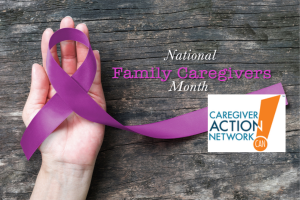Advice For Caregivers To Get Through the Season

Winter can be a challenging season, even for those of us who love cold temperatures, snow sports, and bundling up. For people living with chronic health conditions (such as ALS, Stroke, and other mobility-impacting diseases) and their caregivers, winter can pose many more challenges — difficult weather can make it hard or even impossible to leave home for those with mobility challenges, plus shorter days and fewer holiday gatherings can lead to feelings of isolation, loneliness, and even seasonal affective disorder or depression.
This January, SimpliHere wants to share a few ideas about ways caregivers and the people they care for alike can navigate the winter months to maintain better mental health, balance, and wellbeing.
- The “Worry Container” Exercise: Yoga and meditation instructor Amy Sinclair offers live and recorded sessions that share a short and effective meditation tool called the “Worry Container” that caregivers use when worry and anxiety overtake your mind. This easy-to-follow, 15-minute recording can be streamed on a lunch break or before bed to find a little mindfulness and manage your anxiety.
- Sound Bath: A “sound bath” is an immersive experience in which waves of soothing, echoing sound from traditional wind and percussion instruments may help listeners reduce stress, fatigue, and depression symptoms, according to several studies. In this example, a “sound healer” will use various instruments (including the incredible ocean drum!) to guide you through the sound bath experience. A healing sound bath will leave you feeling rested and ready to embrace winter’s cozy energy!
- Vitamin D: Vitamin D’s anti-inflammatory, antioxidant and neuroprotective
properties support immune health, muscle function and brain cell activity. Our bodies naturally produce vitamin D when our skin is exposed to sunlight. In winter months, however, vitamin D deficiencies are common due to lack of sun exposure — only ten percent of the body is typically exposed when we are bundled up outdoors in winter months — and, because sunlight is weaker in the U.S. during winter, days are shorter, and we are indoors more than usual, most people do not receive the nearly two hours of winter sunlight exposure needed to produce a sufficient amount of vitamin D. Caregivers and patients can help bolster our bodies’ vitamin D stores with drops, gummies, or tablets — food-based supplements tend to digest and metabolize best — and by eating foods that contain vitamin D, such as oily fish, beef liver, and orange juice and milk fortified with vitamin D.
- Support local businesses: After the hectic (and expensive!) holiday season, which requires many stops in retail environments, the slower winter months provide the perfect opportunity to support small, local businesses. Shopping local during slower retail months, choosing a locally owned coffee shop or eatery instead of a national chain, and popping into “mom and pop” businesses even just to browse inventory or ask questions can support small business owners and help maintain the vibrancy of the local community. It can also help you to stay connected, feel good about purchases you needed to make anyway, and reduce feelings of loneliness.
- Prioritize staying connected to friends and extended family: After the holidays, during which we sometimes feel like we have too many family and social events, this can be hard to do, especially if you are not in close proximity to family and friends. But it is important to stay connected to our loved ones during winter months, and social media, messaging programs, and phone calls play an important role for caregivers and those they care for. Use Face Time, Zoom, when you need to have real conversations with loved ones and friends. It’s the next-best thing to seeing them IRL (in real life)!
And remember that our inspiration for founding and building SimpliHere is to connect you with resources and support you in your caregiving journey. Please be sure to leverage the app and take advantage of all it has to offer. Until next month, stay warm, be well, and take care — of you!
About SimpliHere
The mission of SimpliHere is to ensure efficient care and peace of mind for caregivers and their patients with neurological conditions that impact communication and mobility. Joanna Rosenberg founded SimpliHere to address communication gaps between caregivers and patients. Her personal experience when her mother lived with ALS exposed the challenges of communicating and understanding basic needs, as well as managing daily tasks. Download SimpliHere today!








